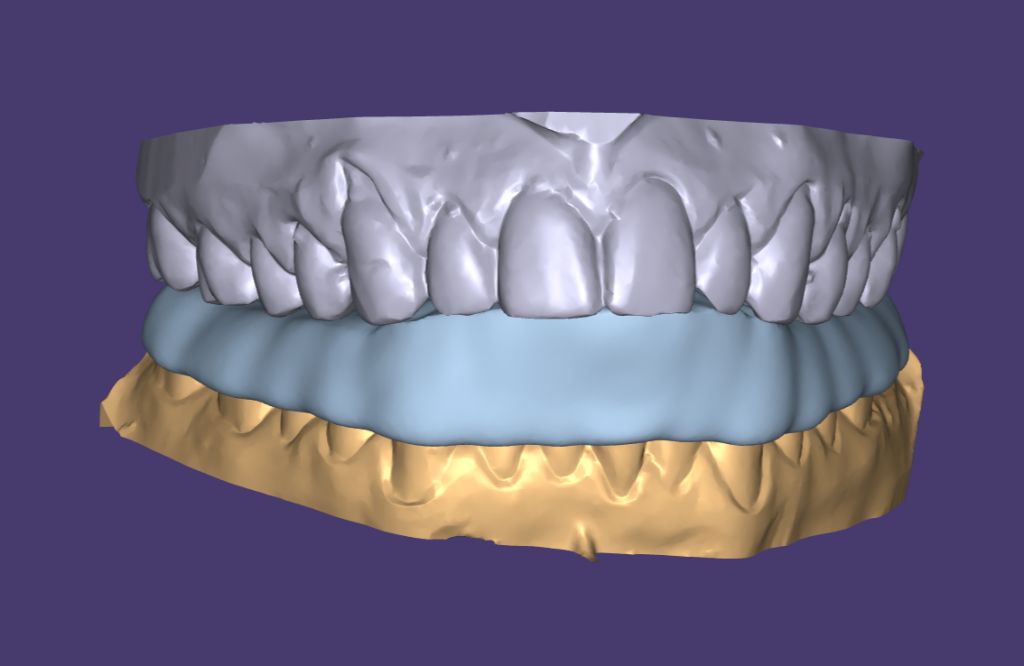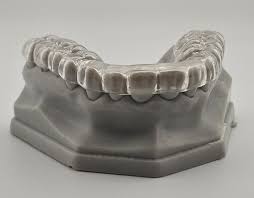DIGITAL NIGHT GUARD
Digital Night Guards: The Future of Teeth Protection or Just Hype?
Grinding your teeth at night? You’re not alone. Night guards are a common solution, acting as a barrier between your upper and lower teeth. But with advancements in technology, the traditional night guard isn’t the only option anymore. Enter the digital night guard. But how do they compare? Let’s dive in.
What’s the Difference?
Traditional Night Guards:
These are typically made from impressions taken by your dentist. The process involves gooey materials, and the resulting guard is often a one-size-fits-most (within a range) approach. While effective for many, they can sometimes be bulky, uncomfortable, and not provide the most precise fit.
Advantages of Digital Night Guards:
- Superior Fit: The precision of digital scanning allows for a much more comfortable and snug fit. This often translates to better retention, meaning the guard is less likely to slip or move around during sleep.
- Increased Comfort: Because of the precise fit, digital night guards can often be made thinner and less bulky than traditional guards, leading to improved comfort and less interference with sleep.
- Durability: The materials used in digital night guards are often more durable and resistant to wear and tear than those used in traditional guards.
- Faster Turnaround: While this can vary by dental practice, the digital workflow sometimes allows for a quicker turnaround time compared to traditional methods.
- Improved Design: Digital technology allows for more complex designs, which can be beneficial for individuals with specific bite issues.
Disadvantages of Digital Night Guards:
- Cost: Digital night guards can sometimes be more expensive than traditional ones, due to the technology and equipment involved. However, the longevity and comfort can offset the initial cost.
- Accessibility: Not all dental practices offer digital night guards. You may need to search for a dentist who has invested in the necessary technology.
- Potential for Technology Issues: As with any digital process, there’s a small chance of technical glitches or errors in the scanning or fabrication process. However, these are generally rare.

Digital Night Guards:
Leveraging cutting-edge technology, digital night guards are created using 3D scanning. Instead of physical impressions, a digital scan of your teeth is taken, providing a highly accurate representation. This digital model is then used to design and fabricate a custom-fit night guard
Advantages of Traditional Night Guards:
- Lower Cost: Traditional night guards are typically more affordable than digital options.
- Wider Availability: Most dentists offer traditional night guards, making them more readily accessible.
Disadvantages of Traditional Night Guards:
- Less Precise Fit: The fit may not be as comfortable or secure as a digital night guard.
- Bulkier: Traditional guards can sometimes feel bulky and uncomfortable in the mouth.
- Less Durable: They may not last as long as digital guards.
- Messy Impression Process: The traditional impression process can be messy and uncomfortable for some patients.

Which is Right for You?
The best type of night guard depends on your individual needs and budget. If comfort and a precise fit are your top priorities, and you’re willing to invest a bit more, a digital night guard might be the right choice. If cost is a major concern, a traditional night guard can still be an effective solution.
Talk to Your Dentist:
The most important step is to discuss your options with your dentist. They can evaluate your specific situation and recommend the best type of night guard for you. They can also answer any questions you have about the different options and help you make an informed decision.
Conclusion:
Digital night guards represent a significant advancement in dental technology, offering potential benefits in terms of comfort, fit, and durability. While they may come at a higher initial cost, the long-term benefits can make them a worthwhile investment for protecting your teeth. However, traditional night guards still play a valuable role and remain a viable option for many. Ultimately, the key is to consult with your dentist to determine the best course of action for your individual needs.
